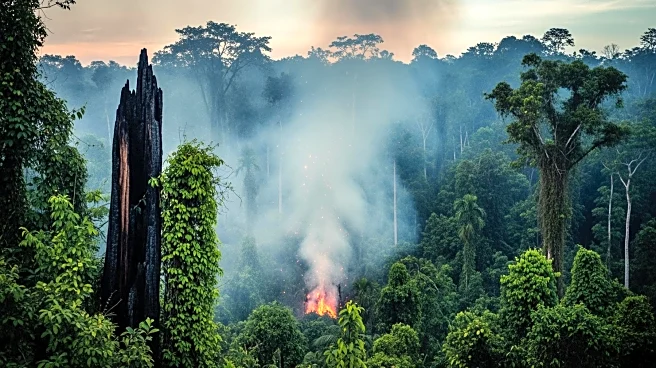What's Happening?
A fire at the COP30 UN Climate Summit in Belem, Brazil, has disrupted proceedings, forcing evacuations and delaying negotiations. The fire occurred in an area hosting sideline events, and while it was
quickly controlled, it led to a temporary halt in the talks. The summit, which is in its final days, has yet to reach major agreements on key issues such as fossil fuel emissions and financial aid to poorer countries. UN Secretary-General António Guterres has urged nations to compromise and show flexibility to achieve results. The fire adds pressure to an already tight schedule, with negotiators working against the clock to finalize agreements.
Why It's Important?
The disruption at the UN climate talks comes at a critical time when global cooperation is needed to address climate change. The delay could impact the ability of negotiators to reach consensus on important issues, potentially affecting global climate policy. The summit aims to address financial aid for climate adaptation and the transition away from fossil fuels, which are crucial for mitigating climate change impacts. The fire highlights the challenges of organizing large international events and the importance of contingency planning. The outcome of the talks will have significant implications for global climate action and the ability of countries to meet their climate commitments.
What's Next?
Negotiators will need to work swiftly to make up for lost time and reach agreements before the summit concludes. The focus will be on finalizing a draft agreement on contentious issues, including financial aid and emissions reductions. The outcome of the talks will influence future climate policies and international cooperation. Countries will need to demonstrate a willingness to compromise to achieve meaningful results. The fire incident may prompt discussions on improving safety and contingency measures for future international summits.









